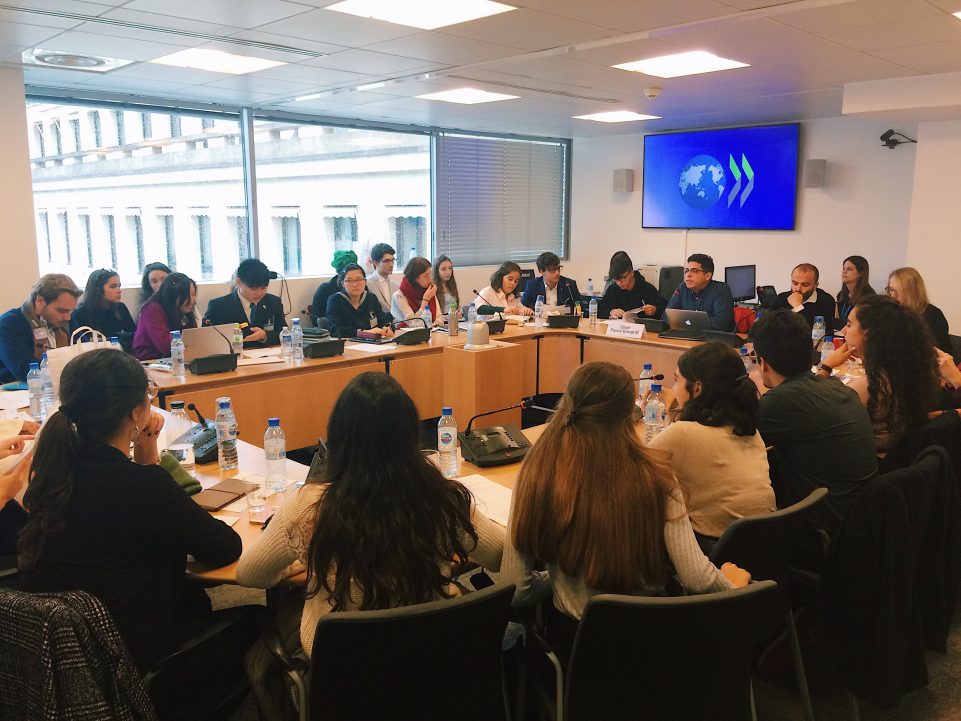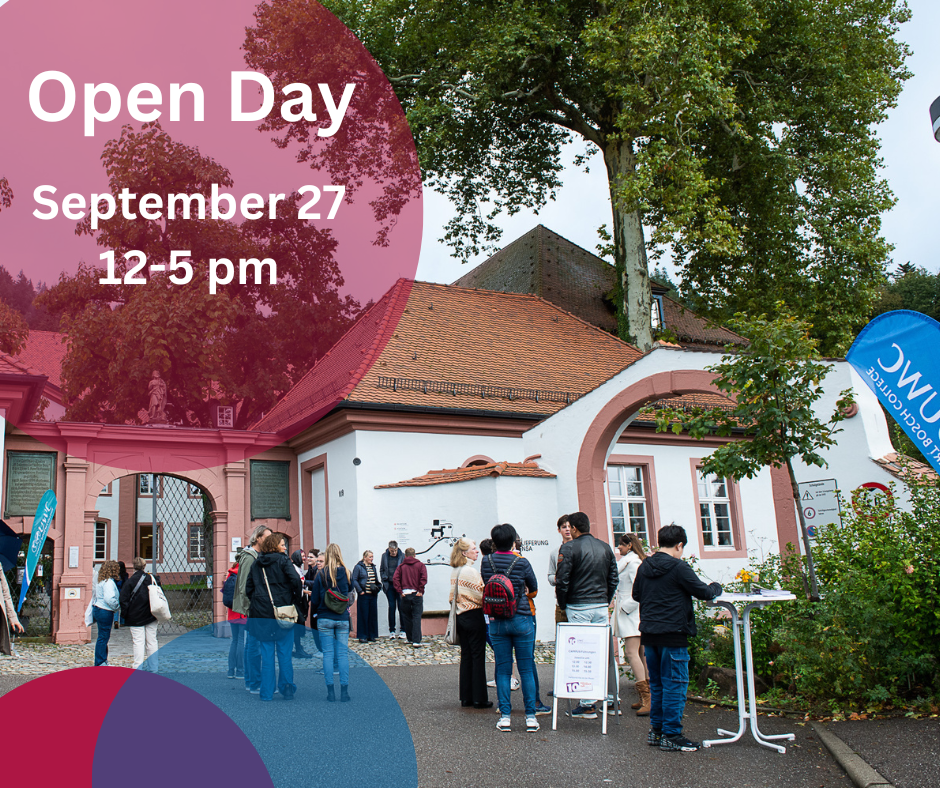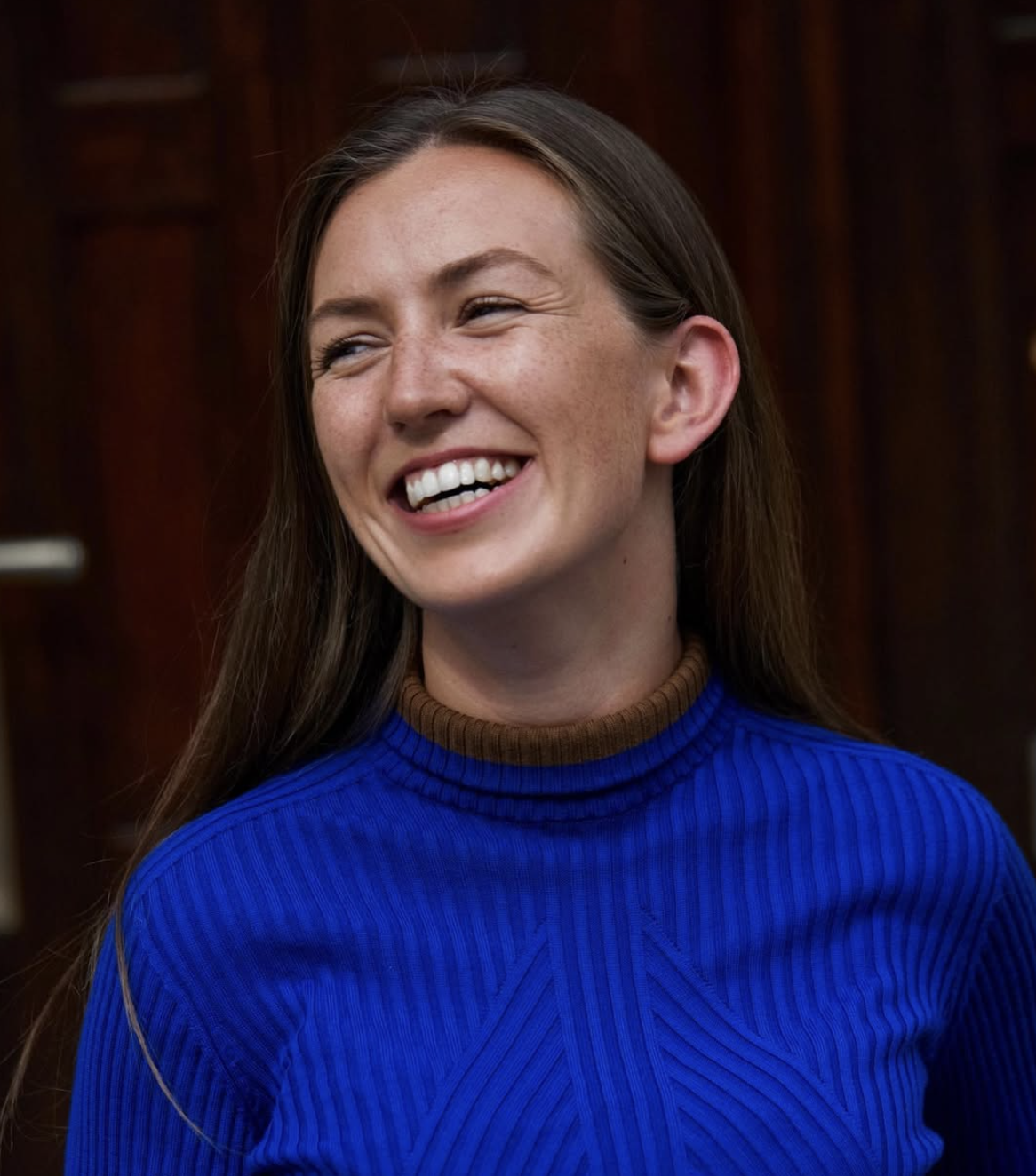Promoting student co-agency in international policy-making

Second-year student Celina Faerch from Denmark has been appointed a member of the student advisory board for the OECD Education 2030 project. OECD (Organization for Economic Cooperation and Development) is an intergovernmental organization with 36 member countries. According to OECD’s website the Future of Education and Skills 2030 project “aims to help countries find answers to what knowledge, skills, attitudes and values are needed for today’s students to thrive and shape their world, as well as how instructional systems can effectively develop them.” In her capacity as a student representative, Celina has been attending OECD meetings in Paris and has actively worked in a student focus group.
Celina, what does the Education 2030 project mean for you?
This project aims to create a framework for education systems around the world to re-conceptualize education for contemporary challenges and unknown issues to enhance well-being in all areas and create the future we want. At the OECD meetings, we have the chance to discuss across initiatives and stakeholders, from national policy-makers, leading experts in education to thought leaders, teachers etc., who gather with one goal: to help future generations solve problems and situations that we do not know anything about yet. It is about recognizing the challenges that exist within the current educational systems, i.e. current curriculum issues, overload or lack of time and equity and identifying ways of overcoming them.
Why and how did you get involved?
Being an organization interested in innovation in education, UWC International was offered seats within the group of student representatives. They reached out to all schools and colleges, asking for applications. I signed up, got selected and went to first meeting in fall 2017. Coming from Scandinavia, which is often used as flagship model for education, the topic has always been of interest to me. Also, in my family, learning, education and communication have always been topics of conversation. As I am interested in studying sociology and policy-making, a peek into the real world of education policy making with OECD seemed intriguing.
What specifically have you worked on?
Over the summer, I have created the model of student co-agency, which will soon be published in the project’s final report. It is called the sun model. It’s exciting, because it is presumably the first academically published model created entirely by students in international education policy ever. We are furthermore working with a social media expert (also a student) on a social media campaign in collaboration with Twitter to increase student visibility and engagement. Also, we demanded that student representatives got a seat at the “big table” together with members of Focus groups 1 and 2, i.e. government reps and education experts, and at the meeting this October that happened. That was a big success!
How can this framework influence education on a national level?
Obviously, the framework for future-oriented education will not be forced upon any countries. However, if countries would like to be recognized for their education internationally, it is encouraged that they follow this model. The phase of assessment and planning for effective implementation is beginning this spring, and it will then become clearer.
Can you share with us your personal highlight from your participation on OECD?
One of them was being a panelist on behalf of the student advisory group at the opening panel discussion in this October meeting, talking about civic engagement, student agency and student’s unrecognized capabilities. This was the culmination of the progress we have worked hard for, from not being heard to owning the space, and demanding our place at the big table. While I think there is lots of room for improvement when it comes to hearing the voice of students, I must also say that in those two years, we have made progress, even if there’s a long way to go.
How would this look like in an ideal world?
This would mean that we get the student voices recognized and respected to an extent that all representatives start listening to the student groups in their countries and that their voices get implemented into policies.
Has this learning process changed the way you see education at RBC?
I think I value the UWC concept much more now; I’ve been confirmed in recognizing what changes UWC can make. It’s been encouraging to see that our ideal of students having a voice and responsibly managing their own education is possible, because it is already happening at RBC. When we talk about student agency, taking initiatives, taking responsibility, then we’re already doing this at RBC, I witness this in the classroom every day. I’m happy to be here!
Also, next week, we will be leading a Global Affairs around diversity in education, sharing our diverse schooling experiences within the student body and get a more global perspective on education.

